Voting Rights
Ayota v. Fall
On October 31, 2024, just five days before the November 5 General Election, Cobb County announced that it had failed to send more than 3,000 absentee ballots to Cobb County voters who had timely requested them. Many of these voters are at school hundreds of miles away or have disabilities that make it all but impossible to vote in person. The ACLU and co-counsel sued on behalf of affected voters to ensure that they would not be disenfranchised because of the County's administrative error.
Status: Ongoing
View Case
Learn About Voting Rights
Featured
U.S. Supreme Court
Oct 2024
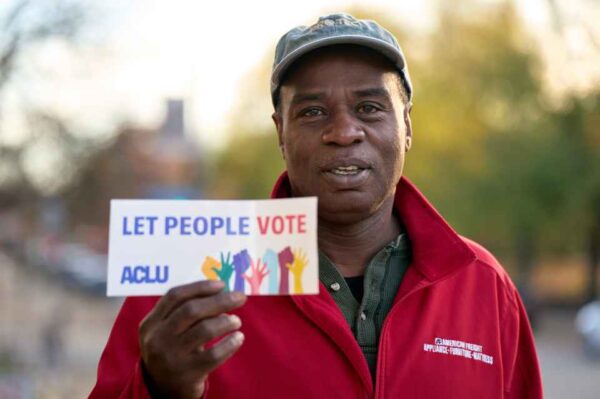
Voting Rights
Republican National Committee v. Genser
Voters in Butler County, Pennsylvania made a mistake in voting their mail ballots in the April 2024 primary election, forgetting to use the required secrecy envelope. Because their mail ballots could not be counted, they went to the polls in Election Day and voted provisional ballots. The County later determined that it would not count their provisional ballots, and the voter’s appealed, arguing that Pennsylvania law requires that when an eligible voter attempts to vote by mail but the mail ballot is rendered void due to some defect like lacking a secrecy envelope, the eligible voter may cast a provisional ballot and have that ballot counted notwithstanding the failed attempt to vote by mail.
Georgia
Oct 2024

Voting Rights
Eternal Vigilance Action, Inc. v. Georgia
The ACLU and partner organizations have sought to intervene in this case to represent the rights of voters and voting-rights organizations in a case challenging a number of rules passed by the Georgia State Election Board. We challenge a rule that requires that the number of votes cast be hand counted at the polling place prior to the tabulation of votes. This rule risks delay and spoliation of ballots, putting in danger voters’ rights to have their votes count.
Texas
Oct 2024
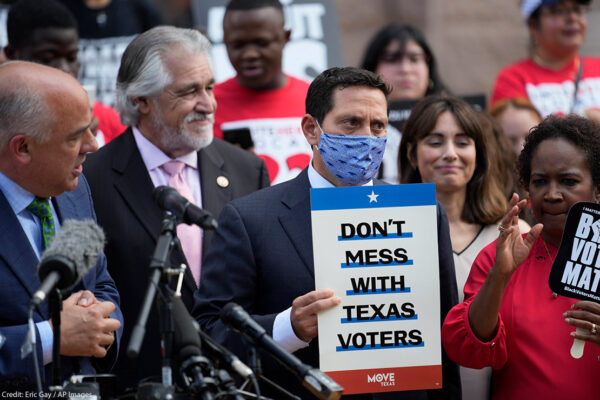
Voting Rights
OCA-Greater Houston v. Paxton
Texas has growing Hispanic and Black populations that helped propel record voter turnout in the November 2020 election. The Texas Legislature responded to this increased civic participation with an omnibus election bill titled Senate Bill 1—SB 1 for short—that targeted election practices that made voting more accessible to traditionally marginalized voters like voters of color, voters with disabilities, and voters with limited English proficiency. Since 2021, SB 1 has resulted in tens of thousands of lawful votes being rejected, and it remains a threat to democracy in Texas.
Michigan
Sep 2024
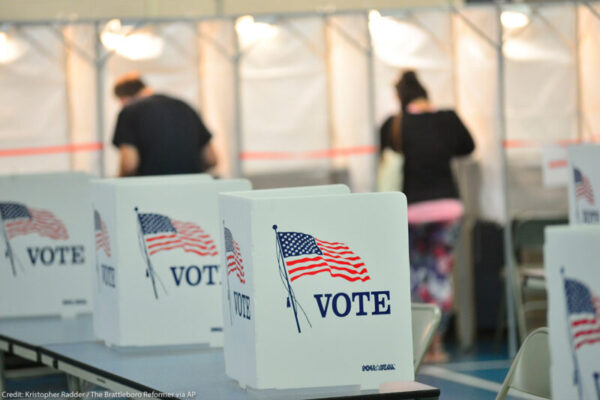
Voting Rights
ACLU of Michigan v. Froman
Michigan requires boards of county canvassers to certify the results of an election within 14 days after the election based on the total number of votes reported from each location. The law doesn't allow them to withhold certification. Kalamazoo Board of County Canvassers member, Robert Froman, has made clear that he would decline to certify the November 2024 election under certain circumstances. This lawsuit asks the state's courts to make clear that Mr. Froman is duty bound to certify the election based on the number of votes reported.
U.S. Supreme Court
Sep 2024

Voting Rights
Callais v. Landry
Whether the congressional map Louisiana adopted to cure a Voting Rights Act violation in Robinson v. Ardoin is itself unlawful as a gerrymander.
Ohio
Jul 2024
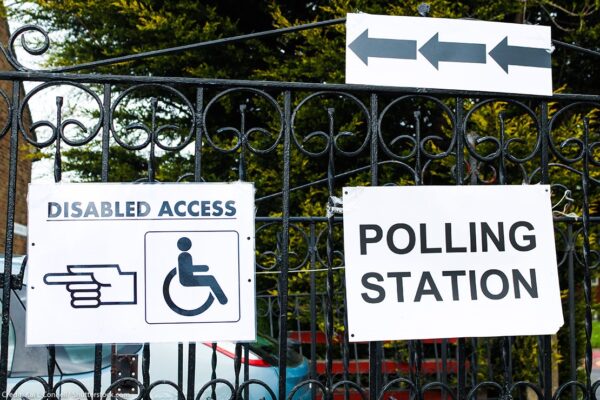
Voting Rights
League of Women Voters of Ohio v. LaRose
In Ohio, HB 458 makes it a felony for any person who is not an election official or mail carrier to return an absentee voter's ballot—including voters with disabilities—unless the person assisting falls within an unduly narrow list of relatives. We are challenging the law because it violates Section 208 of the Voting Rights Act (VRA) and the American with Disabilities Act (ADA) by making it exceedingly difficult for voters with disabilities to cast their ballots.
All Cases
147 Voting Rights Cases
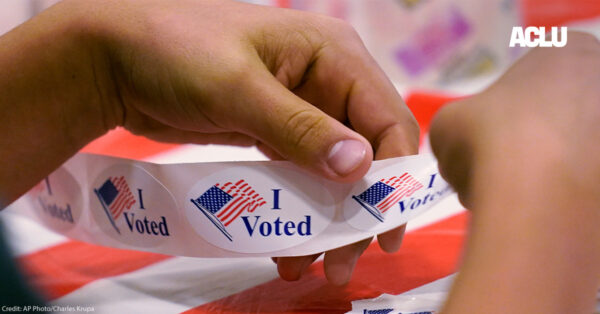
Iowa
Nov 2024
Voting Rights
Selcuk v. Pate
Just two weeks out from the November 2024 presidential election, Iowa Secretary of State Paul Pate issued a directive to county clerks to challenge more than 2,000 voters at the polls on Election Day and force them to vote a provisional ballot that will count only if the voter can prove their citizenship.
The Secretary’s list of more than 2,000 voters does not adequately account for Iowans who have recently become U.S. citizens through naturalization, and thus risks disenfranchising scores of eligible voters based on national origin. The Secretary’s eleventh-hour gambit violates several provisions of the U.S. Constitution and federal law, and we have thus filed emergency suit to enjoin the directive.
Explore case
Iowa
Nov 2024

Voting Rights
Selcuk v. Pate
Just two weeks out from the November 2024 presidential election, Iowa Secretary of State Paul Pate issued a directive to county clerks to challenge more than 2,000 voters at the polls on Election Day and force them to vote a provisional ballot that will count only if the voter can prove their citizenship.
The Secretary’s list of more than 2,000 voters does not adequately account for Iowans who have recently become U.S. citizens through naturalization, and thus risks disenfranchising scores of eligible voters based on national origin. The Secretary’s eleventh-hour gambit violates several provisions of the U.S. Constitution and federal law, and we have thus filed emergency suit to enjoin the directive.
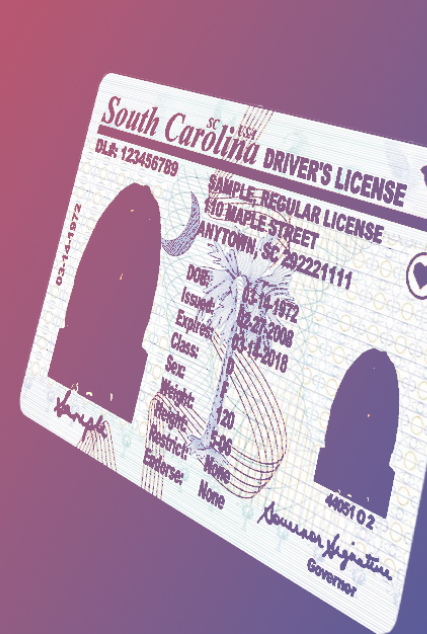
South Carolina
Oct 2024
Voting Rights
American Civil Liberties Union of South Carolina v. State Election Commission
The South Carolina Department of Motor Vehicles (SCDMV) has unlawfully denied young, eligible South Carolinians the opportunity to register to vote. Under South Carolina law, individuals who are 17 years old may register to vote and vote in primary elections so long as they (1) will turn 18 on or before the next general election, and (2) otherwise meet the qualifications for voting. An administrative error in the SCDMV's processes, however has stopped the Department from transmitting the proper paperwork to complete all registration information to the South Carolina Elections Commission. As a result, thousands of young voters who did everything right and should have been registered to vote have not been added to the state's voter rolls in the runup to the 2024 general election. ACLU and ACLU of South Carolina have sued, asking the court to ensure that these new voters are registered and properly notified in time for them to vote in the November 2024 election.
Explore case
South Carolina
Oct 2024

Voting Rights
American Civil Liberties Union of South Carolina v. State Election Commission
The South Carolina Department of Motor Vehicles (SCDMV) has unlawfully denied young, eligible South Carolinians the opportunity to register to vote. Under South Carolina law, individuals who are 17 years old may register to vote and vote in primary elections so long as they (1) will turn 18 on or before the next general election, and (2) otherwise meet the qualifications for voting. An administrative error in the SCDMV's processes, however has stopped the Department from transmitting the proper paperwork to complete all registration information to the South Carolina Elections Commission. As a result, thousands of young voters who did everything right and should have been registered to vote have not been added to the state's voter rolls in the runup to the 2024 general election. ACLU and ACLU of South Carolina have sued, asking the court to ensure that these new voters are registered and properly notified in time for them to vote in the November 2024 election.
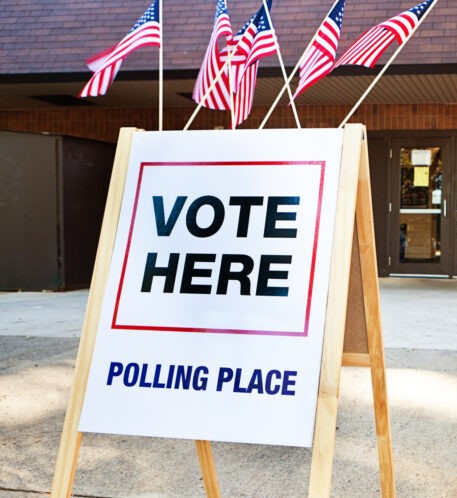
Wisconsin
Oct 2024
Voting Rights
Eucke v. Wisconsin Elections Commission
Just weeks before Election Day, three individuals filed a lawsuit asking a court to initiate an improper purge of Milwaukee voters from the voter rolls. We moved to intervene to protect voters from being purged based on unreliable information.
Explore case
Wisconsin
Oct 2024

Voting Rights
Eucke v. Wisconsin Elections Commission
Just weeks before Election Day, three individuals filed a lawsuit asking a court to initiate an improper purge of Milwaukee voters from the voter rolls. We moved to intervene to protect voters from being purged based on unreliable information.
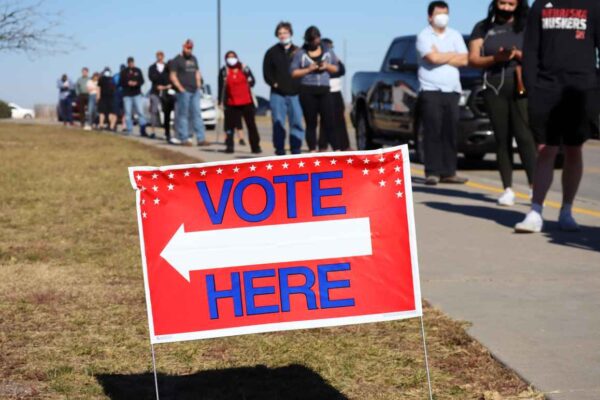
Nebraska Supreme Court
Oct 2024
Voting Rights
Spung v. Evnen
Less than four months before the November 2024 presidential election, the Nebraska Secretary of State issued a directive embracing a non-binding opinion issued by the state Attorney General that would essentially reinstate permanent felony disenfranchisement and re-disenfranchise tens of thousands of Nebraska citizens. This directive is violative of both the Nebraska Constitution and several state statutes, and urgent relief is needed to avoid mass disenfranchisement of an entire class of Nebraska citizens.
Explore case
Nebraska Supreme Court
Oct 2024

Voting Rights
Spung v. Evnen
Less than four months before the November 2024 presidential election, the Nebraska Secretary of State issued a directive embracing a non-binding opinion issued by the state Attorney General that would essentially reinstate permanent felony disenfranchisement and re-disenfranchise tens of thousands of Nebraska citizens. This directive is violative of both the Nebraska Constitution and several state statutes, and urgent relief is needed to avoid mass disenfranchisement of an entire class of Nebraska citizens.
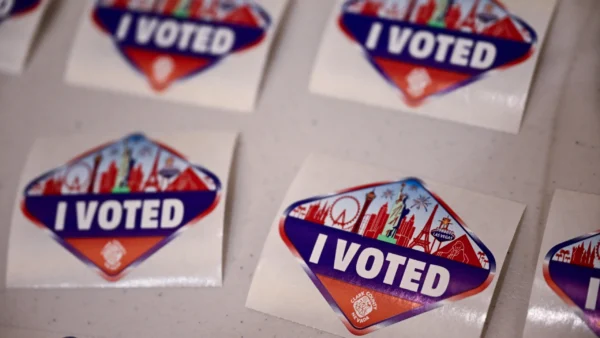
Nevada
Oct 2024
Voting Rights
Citizen Outreach Foundation v. Portillo
On the eve of the November 2024 presidential election, a third-party organization has challenged about 20,000 voters in Clark County, Nevada on the basis of purportedly improper residency. When Clark County rightly declined to process these challenges as improper under Nevada law, the third-party organization sued to compel the county to act on the challenges. The ACLU Voting Rights Project and the ACLU of Nevada have moved to intervene in the case to prevent mass disenfranchisement of Clark County voters mere weeks out from the 2024 general election.
Explore case
Nevada
Oct 2024

Voting Rights
Citizen Outreach Foundation v. Portillo
On the eve of the November 2024 presidential election, a third-party organization has challenged about 20,000 voters in Clark County, Nevada on the basis of purportedly improper residency. When Clark County rightly declined to process these challenges as improper under Nevada law, the third-party organization sued to compel the county to act on the challenges. The ACLU Voting Rights Project and the ACLU of Nevada have moved to intervene in the case to prevent mass disenfranchisement of Clark County voters mere weeks out from the 2024 general election.
